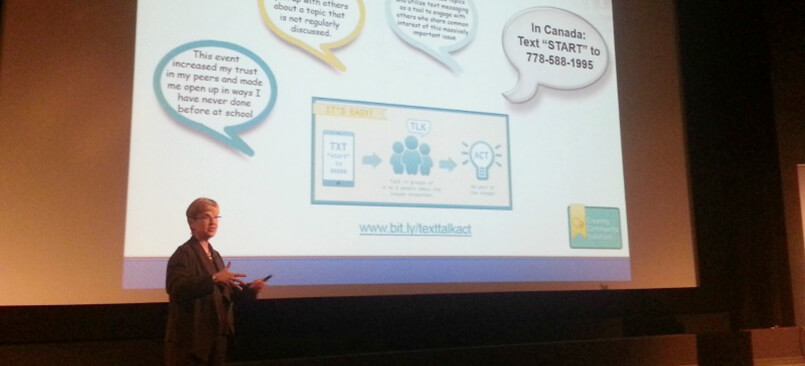[INSIGHTS] Public Engagement Pioneer Speaks in Vancouver

It was great fun to reconnect last week with friend, mentor and collaborator Dr. Carolyn Lukensmeyer at Simon Fraser University’s Centre for Dialogue.
For those who don’t know her, Dr. Lukensmeyer is the Executive Director of the National Institute for Civil Discourse and founder of America Speaks. As one of the foremost citizen engagement practitioners in North America, she has gathered public input on issues ranging from the redevelopment of the World Trade Center after 9/11 to the rebuilding of New Orleans following Hurricane Katrina. Carolyn is a true inspiration and a pioneer in the field of public engagement.
I was honored to be asked to help facilitate an America Speaks event in September 2008 called “Equal Voice for America’s Families Campaign” that brought together 12,000 participants in one session spread across three cities (Los Angeles, CA, Chicago, IL, and Birmingham, AL) all connected by simulcast. It was a thrill and the lessons I learned preparing for and facilitating that event have stuck with me to this day.
The day-long workshop at SFU last week brought together a who’s who of public participation on the west coast including leading academics from SFU and UBC, municipal and regional government agency representatives, and public involvement practitioners from a diverse array of sectors. Carolyn gave an inspiring talk that highlighted her work with America Speaks as well as more recent initiatives leveraging texting and other forms of digital engagement.
Some of the initiatives she spoke about were: Creating Community Solutions as part of the U.S. National Dialogue on Mental Health; the Washington D.C. Citizen Summit on municipal planning and budgeting; and, Listening to the City, the redevelopment of Lower Manhattan after the September 11 terrorist attacks.
The interactive session was, not surprisingly, a dialog and will produce a document of findings on key questions around how we need to act to develop infrastructure to support deeper and more meaningful democratic processes in decision making in BC. The discussion focused on three topic areas: mental health, transportation and urban design.